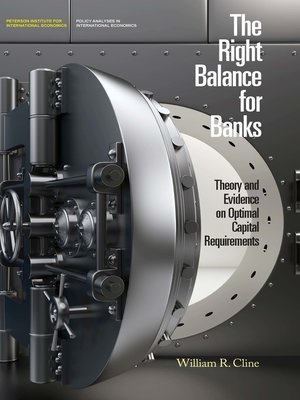The Right Balance for Banks
ebook ∣ Theory and Evidence on Optimal Capital Requirements · Policy Analyses in International Economics
By William R. Cline

Sign up to save your library
With an OverDrive account, you can save your favorite libraries for at-a-glance information about availability. Find out more about OverDrive accounts.
Find this title in Libby, the library reading app by OverDrive.



Search for a digital library with this title
Title found at these libraries:
| Library Name | Distance |
|---|---|
| Loading... |
The global financial crisis produced an important agreement among regulators in 2010–11 to raise capital requirements for banks to protect them from insolvency in the event of another emergency. In this book, William R. Cline, a leading expert on the global financial system, employs sophisticated economic models to analyze whether these reforms, embodied in the Third Basel Accord, have gone far enough. He calculates how much higher bank capital reduces the risk of banking crises, providing a benefit to the economy. On the cost side, he estimates how much higher capital requirements raise the lending rate facing firms, reducing investment in plant and equipment and thus reducing output in the economy. Applying a plausible range of parameters, Cline arrives at estimates for the optimal level of equity capital relative to total bank assets. This study also challenges the recent "too much finance" literature, which holds that in advanced countries banking sectors are already too large and are curbing growth.







